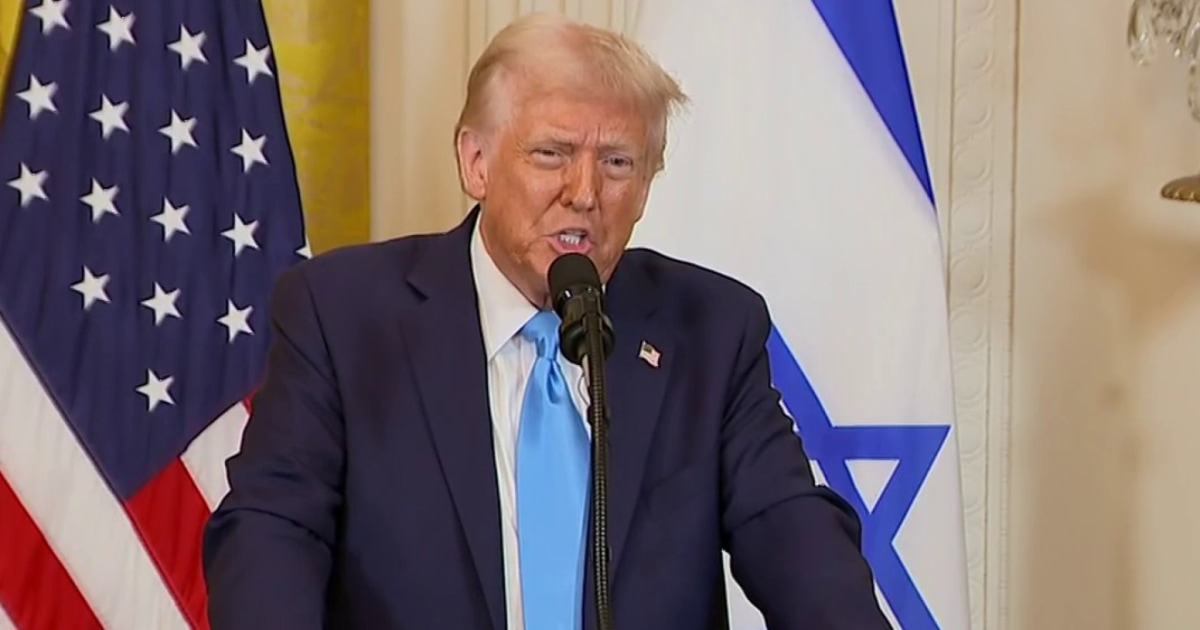Trump Proposes Controversial U.S. Expansion into Gaza
In a surprising political maneuver, former President Donald Trump has suggested a potential U.S. takeover of Gaza, challenging the long-standing ‘America First’ doctrine. This provocative proposal not only raises eyebrows but also ignites a complex debate about U.S. foreign policy and its implications for Middle Eastern relations. As we delve into this controversial proposition, we’ll explore its historical context, potential ramifications, and the broader implications for U.S. diplomacy in the region.
The Context of Trump’s Proposal
Trump’s suggestion appears to stem from a growing frustration with the ongoing conflict in Gaza and the broader Israeli-Palestinian issue. The region has been a hotspot of conflict for decades, with recent escalations leading to humanitarian crises and a cycle of violence that seems unending. Trump’s approach, which he refers to as a necessary intervention, signifies a potential shift from a purely domestic focus to a more interventionist foreign policy stance.
Historically, the ‘America First’ doctrine, which emphasizes prioritizing U.S. interests in foreign policy, has led to a more isolationist stance. Trump’s proposal could signal a departure from this doctrine, suggesting a willingness to engage in international conflicts in a more direct manner. This raises questions about the motivations behind such a move and its alignment with American values and interests.
Understanding the Implications of U.S. Expansion into Gaza
Trump’s proposal to expand U.S. influence into Gaza carries significant implications, both regionally and globally. Here are some potential outcomes:
- Increased Tensions in the Middle East: A U.S. takeover could exacerbate existing tensions between Israel and Palestine, as well as with other Arab nations. The possibility of military presence might be viewed as an occupation, provoking backlash not only from Palestinian factions but also from neighboring countries.
- Humanitarian Concerns: Gaza has been facing dire humanitarian challenges for years. A U.S. expansion could be framed as a way to provide aid and stability, but it could also lead to further complications on the ground, with potential civilian casualties and displacements.
- Domestic Political Repercussions: Within the U.S., Trump’s proposal could polarize opinions. While some may view it as a bold move towards global leadership, others might see it as an unnecessary entanglement in foreign conflicts, potentially alienating moderate voters.
Historical Precedents: U.S. Involvement in Global Conflicts
The U.S. has a long history of involvement in foreign conflicts, often justified under the guise of promoting democracy or stabilizing regions. However, many of these interventions have led to mixed results. For instance:
- The Iraq War: Initiated under the premise of eliminating weapons of mass destruction, the conflict resulted in years of instability and suffering.
- Libya Intervention: The U.S. and NATO’s intervention in Libya is often cited as a failure, leading to chaos and the rise of extremist groups.
These historical examples serve as cautionary tales about the complexities of foreign interventions and the unpredictable nature of international relations.
Domestic and International Reactions
Since Trump’s announcement, reactions have varied widely. Supporters view it as a necessary step to restore order in a chaotic region. They argue that a U.S. presence might bring about stability and peace negotiations. Critics, however, warn that this move could further entrench the U.S. in a conflict that has proven resistant to external solutions.
Internationally, leaders in the Middle East have expressed concern. Many Arab nations are apprehensive about U.S. actions that could be perceived as imperialistic. The potential for increased military presence in Gaza could disrupt delicate balances of power in the region, leading to heightened tensions between the U.S. and various factions within the Arab world.
The Role of Public Opinion
Public opinion plays a crucial role in shaping U.S. foreign policy. Polls indicate that while a segment of the population supports a more aggressive stance in international affairs, a significant number of Americans remain wary of military interventions. Concerns about the financial costs, potential loss of American lives, and the moral implications of intervention are prevalent.
Trump’s proposal may reignite debates about the U.S.’s role in the world, as citizens grapple with the balance between national interest and global responsibility. The discourse surrounding this proposal could influence the upcoming elections, as candidates align their platforms with or against this controversial stance.
Looking Ahead: What’s Next for U.S. Foreign Policy?
As the world watches closely, the implications of Trump’s proposal could reshape U.S. foreign policy for years to come. Key considerations include:
- Negotiating Peace: If pursued, the U.S. could take on a mediator role, facilitating talks between conflicting parties, which could lead to a more stable environment.
- Reassessing Military Strategy: A military presence in Gaza would require a reevaluation of U.S. military strategy and resources, potentially influencing global military commitments.
- Enhancing Diplomatic Relations: Engaging more actively in Gaza could either strengthen U.S. relations with certain nations or lead to further isolation, depending on the global response.
Conclusion
Trump’s controversial proposal for a U.S. expansion into Gaza represents a significant pivot from the ‘America First’ doctrine, challenging the traditional tenets of U.S. foreign policy. As the political landscape evolves, it is crucial for policymakers to weigh the potential benefits against the risks of unintended consequences. The situation in Gaza is complex, and any moves made by the U.S. will require careful consideration and strategic foresight.
In the end, the dialogue around Trump’s proposal underscores the necessity for a thoughtful approach to foreign policy—one that prioritizes not just national interests, but also the well-being of people affected by U.S. actions abroad.
See more BBC Express News

